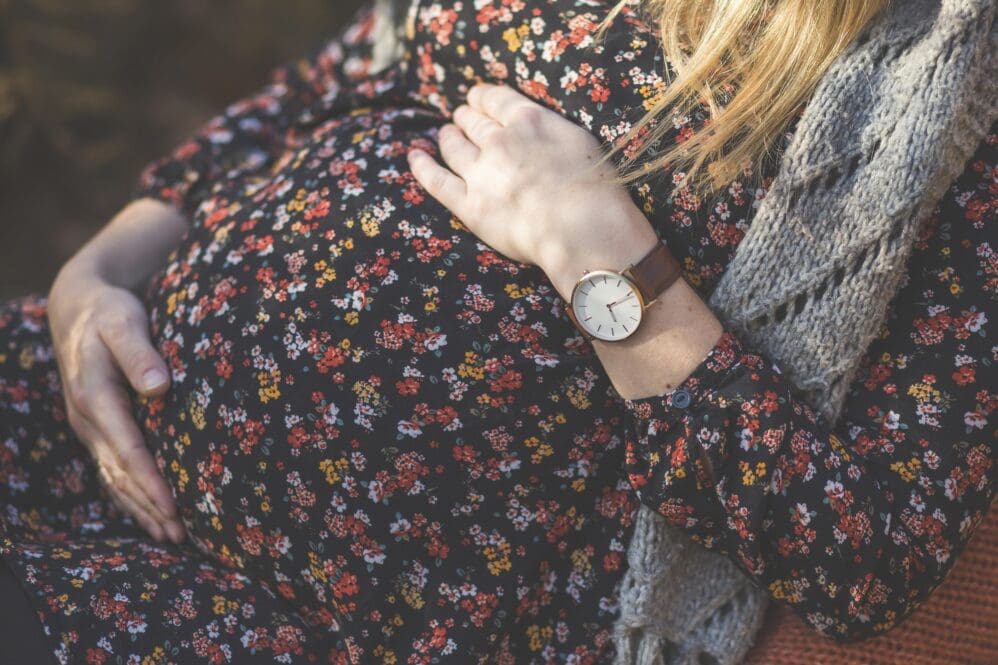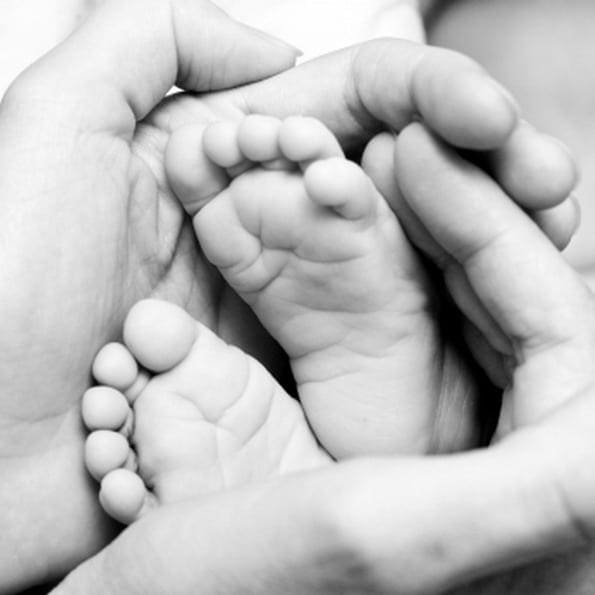Losing a pregnancy is one of the most difficult things a woman can go through. If you have already experienced a miscarriage, the thought of going through it again can be daunting. While there is no guaranteed way to prevent a second miscarriage, there are some things you can do to reduce your risk. Working with your doctor to determine the cause of your first miscarriage is an important first step. Once the cause is known, you and your doctor can develop a plan to reduce the risk of miscarrying again. There are also lifestyle changes you can make to improve your health and increase the chances of a healthy pregnancy. If you have experienced a miscarriage, know that you are not alone. Millions of women go through this every year. With the right information and support, you can increase your chances of having a healthy pregnancy.
1. Up to 20 percent of known pregnancies end in miscarriage. 2. A woman’s risk of miscarrying a second time is about 15 to 20 percent. 3. There are many possible causes of miscarriage. 4. recurrent early pregnancy loss (REPL) is defined as the loss of two or more consecutive pregnancies before 20 weeks gestation. 5. There are some things that may help reduce the risk of miscarrying again. 6. These include: 7. eating a balanced diet, getting enough rest, reducing stress, and avoiding cigarettes and alcohol.
1. Up to 20 percent of known pregnancies end in miscarriage.
When you miscarry, it can feel like the rug has been pulled out from under you. Maybe you had only just found out you were pregnant, or maybe you were already starting to feel bonded with your baby. Regardless, a miscarriage can be a very shattering experience. Although it may be difficult to believe, know that you are not alone—miscarriage is actually quite common. In fact, according to the American College of Obstetricians and Gynecologists, as many as 20 percent of known pregnancies end in miscarriage. It is estimated that 50 percent of pregnancies end in miscarriage before a woman even knows she is pregnant. So if you have had a miscarriage, know that it does not mean that you are somehow responsible, or that you did something wrong. There are many different factors that can contribute to a miscarriage. Often, it is due to a problem with the baby’s chromosomes. Other times, it may be due to a problem with the uterus or placenta. Miscarriage can also be the result of an infection or chronic health condition, such as diabetes or high blood pressure. In some cases, it is due to exposure to toxic substances, like lead or mercury. There are some things that you can do to reduce your risk of miscarrying. If you have had a miscarriage, speak with your doctor to find out if there are any underlying health conditions that may have contributed. If so, you can work on addressing those conditions to reduce your risk in the future. You can also make sure to take care of yourself during pregnancy. This means eating a healthy diet, taking prenatal vitamins, and getting regular exercise. If you smoke, now is the time to quit. Reducing stress can also be helpful. Although there is no guarantee that you will not miscarry again, taking these steps can help reduce your risk.
2. A woman’s risk of miscarrying a second time is about 15 to 20 percent.
No one wants to miscarry, but unfortunately, it is a reality for many women. While the majority of women who miscarry go on to have a successful pregnancy the next time, there is still a sad statistic that 15-20% of women who miscarry will miscarry again. There are a few things that a woman can do to help decrease her chances of miscarrying again. First, she should take folic acid. This is important for all women who are pregnant or trying to become pregnant, but is especially important for women who have previously miscarried. Folic acid helps to prevent birth defects and is found in leafy green vegetables, legumes, nuts, and fortified foods. Second, a woman should pay attention to her weight. Being overweight or underweight can both lead to an increased risk of miscarrying. A woman should talk to her doctor to find out what her ideal weight should be, and then work to maintain that weight. Third, a woman should try to reduce her stress levels. While it is impossible to completely eliminate stress, there are some stress-reducing techniques that can help, such as yoga, meditation, and regular exercise. Fourth, a woman should avoid harmful substances, such as cigarettes, alcohol, and drugs. These substances can all increase the risk of miscarrying. Finally, a woman should make sure to see her doctor regularly. This is especially important during the first trimester, when the risk of miscarrying is the highest. The doctor can perform tests to make sure the pregnancy is progressing normally and can also offer advice on how to reduce the risk of miscarrying. No woman wants to miscarry, but unfortunately, it happens. By following these tips, a woman can help decrease her chances of miscarrying again.
3. There are many possible causes of miscarriage.
There are many possible causes of miscarriage, and it can be difficult to determine the cause of a miscarriage. However, there are some factors that may increase your risk of miscarrying. If you have had a miscarriage, you may be wondering if there is anything you can do to reduce your risk of having another one. Miscarriage is most common in the first trimester of pregnancy. About half of all pregnancies end in miscarriage, and most of those occur in the first trimester. There are many possible causes of miscarriage, but the cause is often unknown. There are some factors that may increase your risk of miscarrying. These include: • Age: Women over the age of 35 are more likely to miscarry than younger women. • Previous miscarriages: If you have had a previous miscarriage, you are more likely to miscarry again. • Health conditions: Certain health conditions, such as diabetes and thyroid disorders, can increase your risk of miscarrying. • smoking: Smoking cigarettes during pregnancy can increase your risk of miscarrying. If you have had a miscarriage, there are some things you can do to reduce your risk of having another one. These include: • Getting early prenatal care: Getting early prenatal care can help you and your health care provider identify any health conditions that may increase your risk of miscarrying. • Managing health conditions: If you have a health condition that increases your risk of miscarrying, working with your health care provider to manage the condition can help reduce your risk. • Quit smoking: If you smoke cigarettes, quitting smoking is the best thing you can do to reduce your risk of miscarrying. There is no guaranteed way to prevent a miscarriage. However, understanding your risk factors and taking steps to reduce your risk can help you have a healthy pregnancy.
4. recurrent early pregnancy loss (REPL) is defined as the loss of two or more consecutive pregnancies before 20 weeks gestation.
If you have suffered one or more early pregnancy losses, it can be difficult to try to conceive again. You may be wondering what you can do to reduce your chances of having a second miscarrriage. There are a number of possible causes of early pregnancy loss, so it can be difficult to identify the cause in any individual case. However, there are some general risk factors that may increase your risk of miscarrying again. These include: · Having a history of infertility or previous miscarriages · Having a medical condition that affects pregnancy (such as diabetes, thyroid disease, or polycystic ovary syndrome) · Having a history of uterine surgery, such as a D&C procedure · Being over the age of 35 · Smoking, drinking alcohol, or using drugs during pregnancy There are a number of things you can do to reduce your risk of miscarrying again. If you have a condition that could affect your pregnancy, such as diabetes or thyroid disease, make sure that it is under control before you conceive. If you have had previous uterine surgery, such as a D&C, talk to your doctor about the best time to try to conceive again. You should also avoid smoking, drinking alcohol, and using drugs during pregnancy. If you are over the age of 35, you may want to consult with a fertility specialist before trying to conceive. If you have had one or more early pregnancy losses, it is important to talk to your doctor about your individual risks before trying to conceive again. By understanding your risks and taking steps to reduce them, you can give yourself the best chance of a successful pregnancy.
5. There are some things that may help reduce the risk of miscarrying again.
There are no guarantees when it comes to pregnancies, but there are some things that may help reduce the risk of miscarrying again. One way to potentially reduce the risk is to wait at least three months after the first miscarriage before trying to conceive again. This gives the body time to recover and improves the chances of a healthy pregnancy. It’s also important to eat a balanced diet and take prenatal vitamins, especially folic acid, which can help prevent birth defects. If you smoke, quitting is essential for a healthy pregnancy. Managing stress is also important, as high levels of stress have been linked to an increased risk of miscarrying. relaxation techniques such as yoga, meditation or deep breathing may help to reduce stress. In some cases, underlying medical conditions such as polycystic ovary syndrome (PCOS) or thyroid disorders can contribute to miscarrying. If you’ve had a miscarriage, it’s a good idea to talk to your doctor to see if there’s any underlying condition that may need to be treated before you conceive again. If you’ve had two or more miscarriages, it may be worth considering genetic testing to rule out any chromosomal abnormalities that could be causing the recurrent miscarriages. With the support of a doctor or other healthcare professionals, most women who have miscarrried go on to have a successful pregnancy.
6. These include:
Around one in four women who miscarry go on to have a second miscarriage. There are a number of things you can do to reduce your chances of having a second miscarriage, including: 1) Speak to your doctor about your previous miscarriage and ask for their advice. 2) Make sure you understand what may have caused your first miscarriage. This can help you to avoid anything that may put you at risk in future. 3) Try to relax and reduce stress in your life. This can be difficult after miscarrying, but stress can impact your health and increase your risk of miscarrying again. 4) Eat a healthy diet and take supplements if recommended by your doctor. 5) Avoid alcohol and smoking. 6) Get regular exercise. 7) If you are overweight, try to lose weight before getting pregnant again. 8) If you have a medical condition, such as diabetes, make sure it is under control before you get pregnant again. 9) Consider seeing a fertility specialist if you have had two or more miscarriages. They can help you to understand any underlying causes and offer treatment options.
7. eating a balanced diet, getting enough rest, reducing stress, and avoiding cigarettes and alcohol.
Having a miscarriage can be heartbreaking and incredibly stressful. If you’ve had a miscarriage, you might be wondering what you can do to reduce your chances of having another one. There are several things you can do that may help. Firstly, it’s important to eat a balanced diet. This means eating plenty of fresh fruits and vegetables, whole grains, and lean protein. Getting enough nutrients is essential for a healthy pregnancy. Secondly, make sure you’re getting enough rest. Pregnancy can be physically and emotionally exhausting, so it’s important to get as much rest as possible. Consider taking a nap during the day or going to bed a little earlier than usual. Thirdly, try to reduce stress as much as possible. Stress can have a negative impact on your health and may increase your risk of miscarrying. Relaxation techniques like yoga or meditation can be helpful. Finally, avoid cigarettes and alcohol. Both of these substances can increase your risk of miscarrying. If you’re trying to conceive, it’s best to avoid them altogether. By following these tips, you may be able to reduce your chances of having a second miscarriage. Of course, it’s also important to talk to your doctor. They can provide you with additional information and support.
If you have had a previous miscarriage, there are some things you can do to reduce your chances of having another one. First, make sure you are getting enough folic acid. You can get this by taking a supplement or eating foods that are high in folic acid, such as leafy green vegetables or legumes. Second, avoid smoking and drinking alcohol. Both of these things can make it more difficult for a pregnancy to survive. Finally, talk to your doctor about any medications you are taking. Some medications can make it more likely to miscarry, so your doctor may be able to prescribe an alternative.











